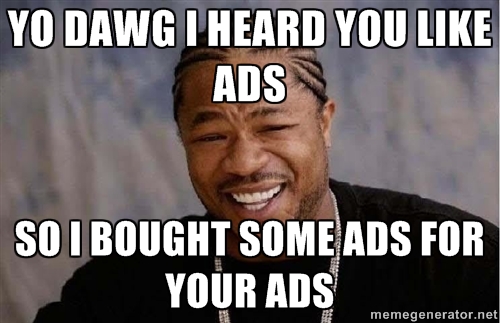 Over at Gawker, there’s an interesting discussion going on in the comments of this story about Facebook, BuzzFeed, and the impact of buying traffic. (“Buying traffic” in this case meaning paying Facebook to promote your stories within its walls.)
Over at Gawker, there’s an interesting discussion going on in the comments of this story about Facebook, BuzzFeed, and the impact of buying traffic. (“Buying traffic” in this case meaning paying Facebook to promote your stories within its walls.)
The conversation is happening right now as I type this, so there may be more gold to come, but a few highlights. First Gawker boss Nick Denton:
Not that there’s anything wrong with Buzzfeed buying traffic on Facebook. But we don’t. Slow and steady. Oh, for the record, we’ve tried a few experiments with bought traffic. But the numbers never added up.
Then Gawker editor John Cook:
Nick, I am reliably told by people in the ad department that Gawker Media does in fact actively buy Facebook traffic for sponsored posts. And Joel Johnson, our editorial director, is exploring the idea of buying Facebook ads for editorial posts. For the record, I’m agnostic on the idea of doing it for ads—not my side of things, though I do think it’s important to be open about the business model. As for editorial, I don’t really like the idea of trumpeting our numbers when some of those were simply purchased. I prefer, as I think you do, earning them.
Gawker staff writer Adam Weinstein:
Agreed with John. I don’t see such buys as a problem in principle, provided that 1) a media organization is very transparent about them and 2) said media organization doesn’t then promote ad-buy-related successes as the successes of “organic” content. That’s Adorno-esque “culture industry” territory there. In practice, the distinction between “bought” and “earned” popularity is pretty artificial. My only concern, and the one that motivated this piece, is to challenge anyone who claims without warrant that an artificial boost is the product of natural forces.
(Yes, that was an Adorno reference.)
Then James Del from the Gawker ad team:
James from the Gawker Ad Team here, wanted to just provide some context to what Cook & Co are talking about.
For posts that are published on the Studio@Gawker Kinja or individual brand Kinjas (like Netflix, for example), we do occasionally utilize Facebook and Twitter ads to reach a wider audience for stories that are organically performing well. The company we use to buy those ads is a company called Simple Reach, which was actually started by some guys who were tangentially involved with Buzzfeed’s early traffic experiments.
But to be clear: The traffic we’ve purchased on Facebook and Twitter for promoted stories has equaled less than 20,000 pageviews in total over the course of the last 2 months.
Again, the sole purpose of buying this traffic is to provide extended reach for branded content to an audience not currently on our site, not to artificially boost traffic numbers. The strength of our editorial wildly eclipses any amount of traffic we could or would purchase; it’s effectively a drop in the bucket.
And yes, our advertisers are fully aware that we’re promoting their sponsored posts on Facebook and Twitter…in fact the only reason we do it is because so many advertisers expect it now.
As for whether or not it makes sense for editorial to try buying Facebook promo, I personally think it makes sense for certain stories that are already organically successful. Taking an excellent Gawker post from a million views to two million views with a $500 Facebook spend seems like a no brainer, but becoming reliant on Facebook to prop up every story we publish is a great way to create a rickety business model akin to Upworthy or ViralNova.
And Nick again:
In case anyone missed the key line, 20,000 page impressions bought from Facebook. That compares with total Gawker Media traffic in excess of 600m pages per month.
Just so we’re absolutely clear, bought traffic for individual posts from Facebook represented 0.003 per cent of organic.
So we’re at a point where advertisers expect publishers to buy ads for their ads — even when it’s not particularly effective.

Leave a comment